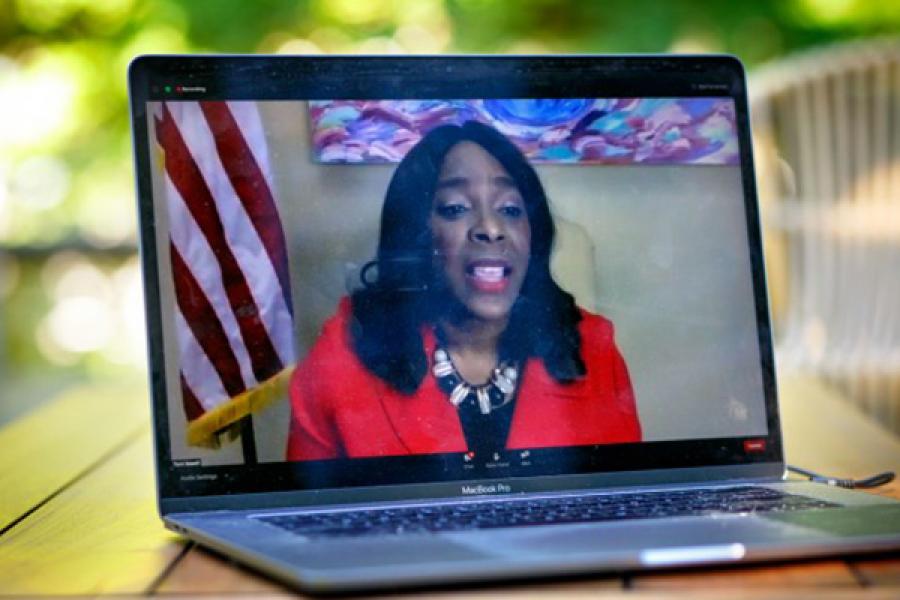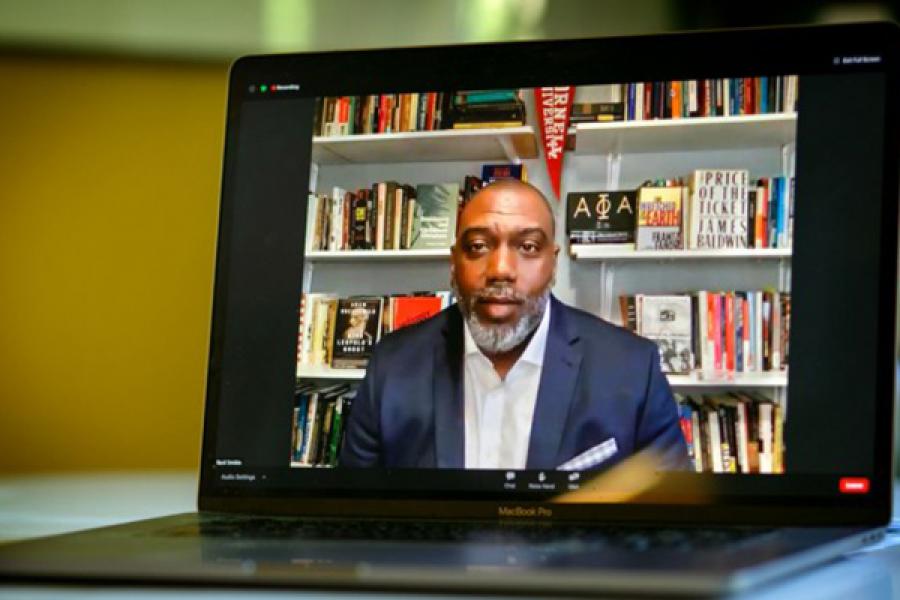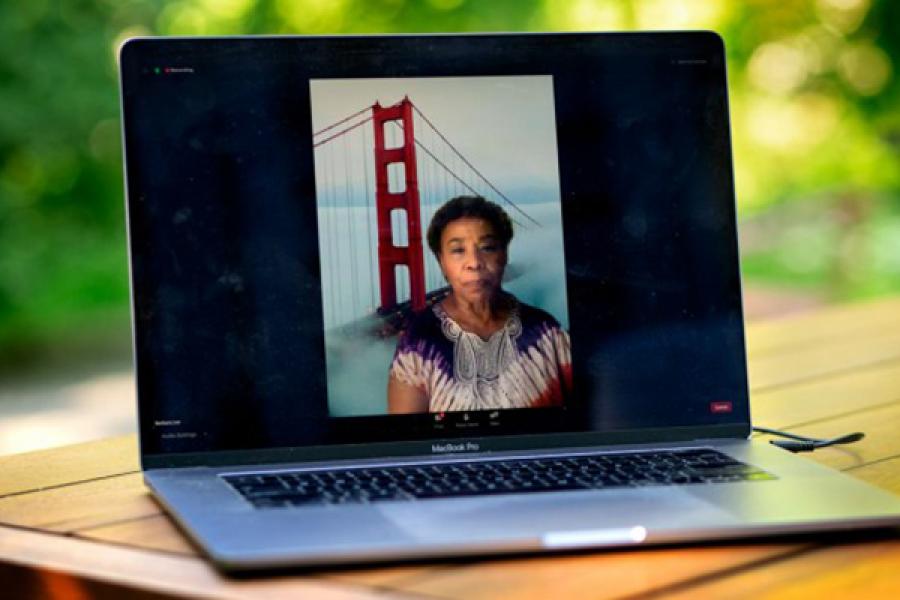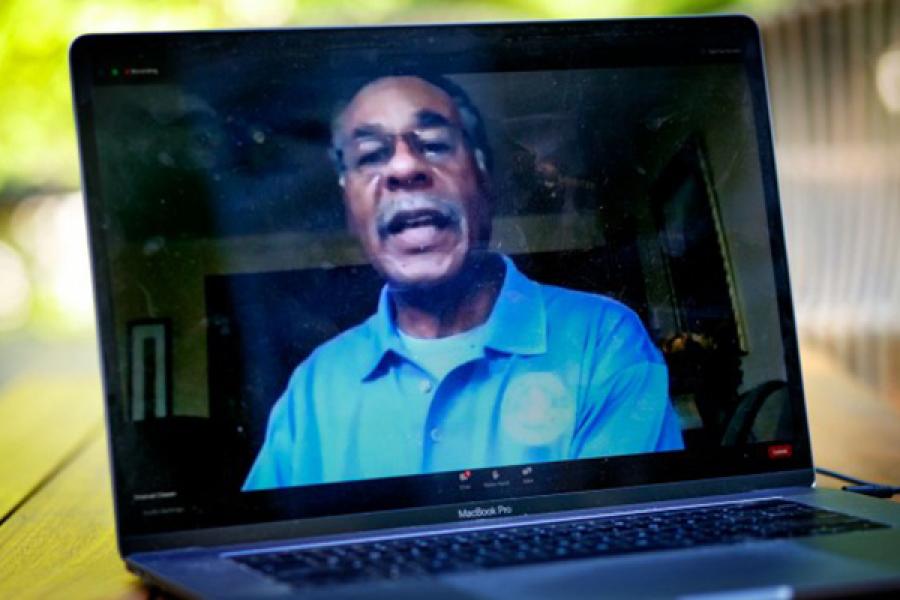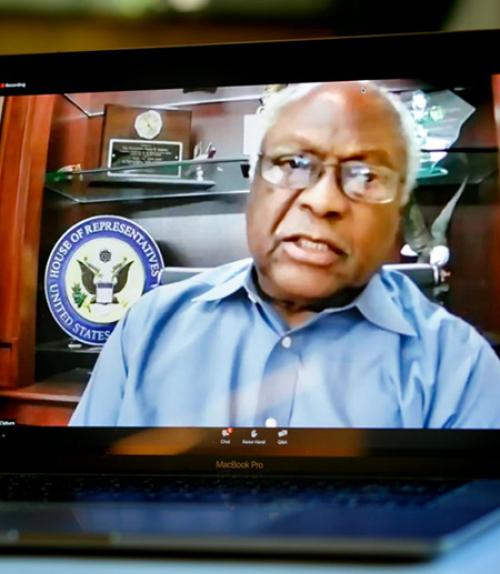Weeks of protests across the nation, signs supporting Black Lives Matter in more conservative neighborhoods, and reforms enacted since George Floyd’s death in Minneapolis all signal “a defining moment” and an opportunity for systemic change, four black lawmakers said June 15 during a Cornell-sponsored forum.
“I just pray this moment will yield the kind of direct action that is so needed, and what that outcry is about,” said U.S. Rep. Terri Sewell of Alabama. “This moment calls upon all of us to do all that’s in our power – wherever we are and whatever platform we have – to see, to hear and to act.”
Sewell was one of four members of the Congressional Black Caucus, all Democrats, to participate in “A Congressional Conversation on Race and Justice in America,” hosted by the Institute of Politics and Global Affairs. The others were Emanuel Cleaver of Missouri, James E. Clyburn of South Carolina and Barbara Lee of California.
Basil Smikle Jr. ’93, a political strategist and lecturer at Columbia University, moderated the 90-minute virtual discussion on Zoom for the bipartisan institute whose mission is to deepen political discourse and understanding, led by former congressman Steve Israel, professor of the practice in the Department of Government. Watch a replay here.
The event helped engage the Cornell community in a national dialogue about “how our country can learn from this moment of tragedy and begin to right centuries of wrong by effecting meaningful change, addressing inequality and combating the scourge of systemic racism,” said Douglas Kriner, the Clinton Rossiter Professor in American Institutions in the College of Arts and Sciences and faculty director of the institute.
Clyburn, the House majority whip, placed recent events in a historical context that he said is too often lost in discussions about race in America: Whites came to this country freely; blacks did not.
“All of the institutions that have developed in this country over that more than 400-year period starting in 1619 when the first blacks came ashore, everything that has been institutionalized in this country has been designed to keep that element in place,” Clyburn said. “That frames everything that’s happened in this country.”
Upcoming Juneteenth celebrations, Clyburn noted, commemorate the end of slavery when union soldiers landed at Galveston, Texas, on June 19, 1865 – more than two years after the Emancipation Proclamation.
Lee, whose grandfather was born in Galveston shortly before Maj. Gen. Gordon Granger’s arrival there, has introduced legislation calling for a Truth, Racial Healing and Transformation Commission, similar to truth and reconciliation commissions in South Africa and other countries.
The commission would examine the United States’ legacy of slavery “and how that impacts what we’re seeing today in police murders, in disproportionate rates of African Americans dying from COVID-19, in the wage disparity, in the wealth gap, in the housing discrimination,” Lee said. “Many don’t even know and don’t even understand how those chains still haven’t been broken.”
Caucus members have helped draft the Justice in Policing Act of 2020, proposing reforms to increase police accountability and training, ban practices such as racial profiling, no-knock warrants and choke holds, and end transfers of military weapons to police departments.
“It’s a defining moment, I think, for our country,” Lee said.
Clyburn opposes calls to “defund” the police, saying requests to restructure and reimagine policing would be more effective. He recalled how the headline “Burn, baby, burn,” associated with riots in 1965, set back civil rights progress then. “I don’t want us to lose this movement,” he said.
Asked how mayors can respond to protestors’ demands and work with police departments and unions, Cleaver – who was elected Kansas City’s first black mayor in 1991 – stressed the importance of a trusted police chief and communicating with the people. Cleaver worked with demonstrators angered by the Rodney King verdict in 1992, and he continues to encourage protestors to march peacefully in full public view.
“Martin Luther King never led a march at night,” Cleaver said. “We want to be daytime protestors.”
Sewell, a self-described “daughter of Selma,” said peaceful protest and racial violence have gone hand in hand over time to drive positive change. Like Lee, she said the “street heat” applied by a “beautiful mosaic” of protesters has made a difference.
Sewell asks white colleagues who want to help to “be willing to do the easy stuff,” which includes removing tributes to Confederate leaders. Alabama, she said, honors Jefferson Davis with a state holiday and celebrates Martin Luther King Jr.’s birthday in conjunction with Robert E. Lee’s.
“It’s unacceptable, and frankly, it’s the low-hanging fruit,” Sewell said. “If we’re saying in this time and this space that black lives matter, then see me, hear me and remove those vestiges of white supremacy.”
In addition to policing reforms, Sewell called for the U.S. Senate to pass a House bill she said would fully restore the Voting Rights Act of 1965. She warned of the potential for widespread disenfranchisement during this November’s presidential election.
Incidents of police brutality have converged with the coronavirus pandemic, the panelists noted, laying bare racial inequities in health, wealth and justice.
“We have had some faults revealed,” Clyburn said. “Now the question is, will we be able to repair those faults?”
Read the story in the Cornell Chronicle.
